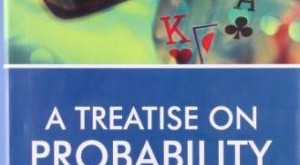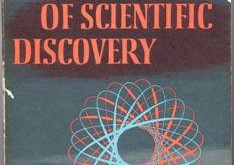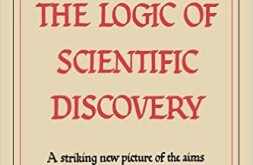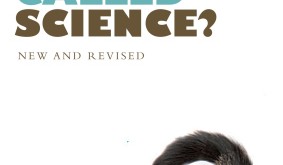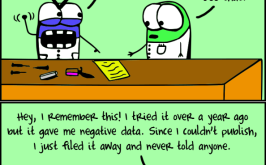Mainstream economics — going for the wrong kind of certainty In science we standardly use a logically non-valid inference — the fallacy of affirming the consequent — of the following form: (1) p => q (2) q ————- p or, in instantiated form (1) ∀x (Gx => Px) (2) Pa ———— Ga Although logically invalid, it is nonetheless a kind of inference — abduction — that may be factually strongly warranted and truth-producing. Following the general pattern ‘Evidence...
Read More »Keynes’ critique of scientific atomism
Keynes’ critique of scientific atomism The kind of fundamental assumption about the character of material laws, on which scientists appear commonly to act, seems to me to be much less simple than the bare principle of uniformity. They appear to assume something much more like what mathematicians call the principle of the superposition of small effects, or, as I prefer to call it, in this connection, the atomic character of natural law. The system of the material universe must consist, if...
Read More »Science and truth
In my view, scientific theories are not to be considered ‘true’ or ‘false.’ In constructing such a theory, we are not trying to get at the truth, or even to approximate to it: rather, we are trying to organize our thoughts and observations in a useful manner. Robert Aumann What a handy view of science. How reassuring for all of you who have always thought that believing in the tooth fairy make you understand what happens to kids’ teeth. Now a ‘Nobel prize’ winning economist tells you...
Read More »Bayesianism — confusing degree of confirmation with probability
Bayesianism — confusing degree of confirmation with probability If we identify degree of corroboration or confirmation with probability, we should be forced to adopt a number of highly paradoxical views, among them the following clearly self-contradictory assertion: “There are cases in which x is strongly supported by z and y is strongly undermined by z while, at the same time, x is confirmed by z to a lesser degree than is y.” Consider the next throw with a homogeneous die. Let x be...
Read More »Heckscher-Ohlin and the ‘principle of explosion’
The other day yours truly had a post up on the Heckscher-Ohlin theorem, arguing that since the assumptions on which the theorem build are empirically false, one might, from a methodological point of view, wonder how we are supposed to evaluate tests of a theorem building on known to be false assumptions. What is the point of such tests? What can those tests possibly teach us? From falsehoods anything logically follows. Some people have had troubles with the last sentence — from...
Read More »Ceteris paribus — an alibi fairy
Ceteris paribus — an alibi fairy When applying deductivist thinking to economics, mainstream economists usually set up ‘as if’ models based on a set of tight axiomatic assumptions from which consistent and precise inferences are made. The beauty of this procedure is of course that if the axiomatic premises are true, the conclusions necessarily follow. The snag is that if the models are to be relevant, we also have to argue that their precision and rigour still holds when they are applied to...
Read More »Top 10 theory of science books for economists
Top 10 theory of science books for economists • Archer, Margaret (1995). Realist social theory: the morphogenetic approach. Cambridge: Cambridge University Press • Bhaskar, Roy (1978). A realist theory of science. Hassocks: Harvester • Cartwright, Nancy (2007). Hunting causes and using them. Cambridge: Cambridge University Press • Chalmers, Alan (2013). What is this thing called science?. 4th. ed. Buckingham: Open University Press • Garfinkel, Alan (1981). Forms of explanation: rethinking...
Read More »Critical realism and scientific explanation
Critical realism and scientific explanation ‘Critical realism’ is very similar to the jargon-dense, literary ‘critical theory’ taught in literature departments. Noahpinion One of the most important tasks of social sciences is to explain the events, processes, and structures that take place and act in society. But the researcher cannot stop at this. As a consequence of the relations and connections that the researcher finds, a will and demand arise for critical reflection on the findings....
Read More »Bayesianism — an unacceptable scientific reasoning
Bayesianism — an unacceptable scientific reasoning A major, and notorious, problem with this approach, at least in the domain of science, concerns how to ascribe objective prior probabilities to hypotheses. What seems to be necessary is that we list all the possible hypotheses in some domain and distribute probabilities among them, perhaps ascribing the same probability to each employing the principal of indifference. But where is such a list to come from? It might well be thought that...
Read More »Journal of Failed Experiments
Journal of Failed Experiments The advantage of randomised experiments in describing populations creates an illusion of knowledge … This happens because of the propensity of scientific journals to value so-called causal findings and not to value findings where no (so-called) causality is found. In brief, it is arguable that we know less than we think we do. To see this, suppose—as is indeed the case in reality—that thousands of researchers in thousands of places are conducting experiments...
Read More » Heterodox
Heterodox


